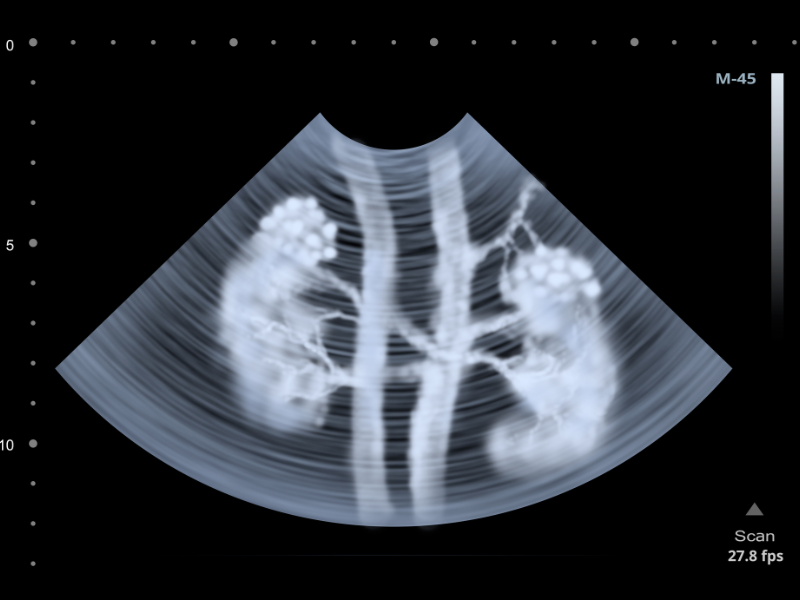Kidney stones are a common medical condition that affects many people within the population. The correct and prompt detection of kidney stones depends on several imaging procedures, which enable proper treatment. The price information about diagnostic examinations in India should be accessible to patients so that they can make educated healthcare choices.
The blog delivers a complete breakdown of kidney stone scanning cost in India, which includes price-related elements, regional price variations, and international points of reference. A kidney stone scan is an essential diagnostic test to detect stones early and prevent complications. While the cost can range from ₹3,000 to ₹10,000, crowdfunding in India helps patients who may struggle to cover diagnostic expenses.
Help someone get timely support by choosing to Refer a Patient for Medical Help today.
Read More: Impact Guru hospital finder tool India
Read More: Understanding Sciatica: Symptoms, Causes & Treatment
Table of Contents
- How can understanding the cost of kidney stone scans in India help patients get timely diagnosis and avoid unnecessary treatment delays?
- Kidney Stone Scanning Cost In India
- Breakdown Of Kidney Stone Scanning Cost In India
- Different Types Of Kidney Stone Scans In India
- Factors Affecting the Kidney Stone Scanning Cost in India
- City-Wise Cost Estimate
- 10 Best Hospitals For Kidney Stone Scans In India
- Conclusion
- FAQs
How can understanding the cost of kidney stone scans in India help patients get timely diagnosis and avoid unnecessary treatment delays?
Knowing the typical costs of kidney stone scans — such as ultrasound, X-ray, and CT scans — helps patients plan their healthcare budget, choose the most appropriate and affordable diagnostic option, and seek timely medical advice. Early and accurate scanning can prevent complications, reduce overall treatment expenses, and lead to better health outcomes.
Kidney Stone Scanning Cost In India

Read More: Best Kidney Transplant Hospitals in Ahmedabad and Their Costs
The financial details about diagnostic procedures need full comprehension by patients for proper healthcare decisions. The following section includes a breakdown of the kidney stone scanning cost available in Indian healthcare facilities:
1. Minimum Cost: ₹200 – ₹500
The costs are lowest when patients use standard healthcare settings to perform basic diagnostic procedures (like X-rays).
2. Average Cost: The average cost varies depending on the type of scan:
- Ultrasound: ₹1,000 to ₹3,000
- X-ray (KUB): ₹500 to ₹1,500
- CT Scan (CT KUB): ₹3,000 to ₹10,000
- MRI: ₹6,000 to ₹8,000
Standard diagnostic procedures in India can typically cost between an average set range, which includes imaging tests along with consultation fees.
KUB – Kidney, Ureter, and Bladder
Learn about treatment options and recovery as you Explore Patient Care Guides anytime.
3. Maximum Cost: ₹10,000 or more
The maximum kidney stone scanning cost category signifies the highest charges because it includes both innovative imaging methods and advanced healthcare centres, and specialised medical evaluation.
Get to know how much surgeries and diagnostic tests typically cost with our Comprehensive Guide to Treatment & Surgery Costs in India.
Also Read: Kidney Stone- Diagnosis, Causes, Treatment, & More
Breakdown Of Kidney Stone Scanning Cost In India
Get an estimate of treatment costs instantly with the Disease Cost Calculator.
Understanding the components of kidney stone scanning cost can help patients plan their treatment route better.
| Cost Component | Which May Include | Estimated Range (₹) |
| Pre-Operative Tests | Initial consultations, diagnostic tests, & any necessary pre-procedure medications. | ₹500 – ₹5,000 |
| Imaging Procedures | Imaging Modality (the specific technique or technology used for the images) | ₹500 – ₹10,000 |
| Consultation Fees | Evaluation of Reports, diagnosis, medical advice, prescription, & follow-up plan. | ₹500 – ₹1,500 |
| Medications & Follow Up | Follow-up consultations, medications, & any additional tests to monitor recovery and ensure the absence of complications. | ₹500 – ₹2,000 |
Note: These estimates are approximate and can vary based on location, medical facility, and individual patient needs. Modern imaging tests like CT scans or ultrasounds are crucial for accurate diagnosis. Families can raise money online to meet these costs quickly without worrying about loans or financial stress. Through crowd funding India, communities come together to support patients in need, helping them access medical scans and treatments on time without financial delays.
Take the next step toward recovery—Find hospital and fund your treatment in one place.
Different Types Of Kidney Stone Scans In India

Different types of kidney stone scans are used based on the approach of the medical professional & patient’s medical condition:
1. Ultrasound (USG)
- Procedure: A non-invasive test using sound waves to create images of the kidneys and bladder.
- Benefits: No radiation exposure, widely available, and cost-effective.
- Disadvantages: May not detect very small stones or those located in the ureters.
- Estimated Cost in India: ₹1,000 to ₹3,000
2. X-ray (KUB)
- Procedure: An imaging technique that captures images of the kidneys, ureters, and bladder to detect radiopaque stones.
- Benefits: Quick, widely availabl,e and useful for tracking the size and location of certain stones over time.
- Disadvantages: Limited in detecting smaller or radiolucent stones. Involves radiation exposure.
- Estimated Cost in India: ₹500 to ₹1,500
3. Computed Tomography (CT) Scan
- Procedure: Provides detailed cross-sectional images of the urinary system, often without contrast.
- Benefits: Quick and non-invasive with high accuracy in detecting stones of all sizes and compositions.
- Disadvantages: Higher cost compared to USG and X-ray, and involves higher radiation exposure.
- Estimated CT Scan For Kidney Stone Cost In India: ₹3,000 to ₹10,000
4. Magnetic Resonance Imaging (MRI)
- Procedure: Uses magnetic fields and radio waves to produce detailed images of organs and tissues.
- Benefits: No radiation exposure, also provides detailed images of soft tissues.
- Disadvantages: Less effective in detecting calcified stones. Higher cost and less availability.
- Estimated Cost in India: ₹6,000 to ₹8,000
You can raise money through crowdfunding while reaching beyond your circle.
Crowdfunding helps you raise money by amplifying collective support.
Factors Affecting the Kidney Stone Scanning Cost in India
Multiple elements determine how much a kidney stone scan will cost patients:
1. Type Of Imaging Modality
- Basic X-ray examinations, along with ultrasound testing, generally cost less than using advanced imaging equipmen,t including CT scans and MRIs.
- Higher accuracy and detailed imaging offered by these modalities help justify their increased price in difficult diagnostic situations.
2. Healthcare Facility
- The fee structure at advanced hospitals that possess high-tech equipment and expert specialists results in higher costs than those found in standard clinics.
- Customers benefit from faster services together with superior care while receiving access to multiverse medical expertise at these facilities, thus affecting the pricing structure.
3. Geographical Location
- The expenses for medical services differ between geographical areas because each region handles its operational costs and economic factors differently.
- Labels for medical diagnosis elements incur more expensive fees within metropolitan zones compared to rural setups due to the influence of both overhead costs & market prices.
4. Additional Services
- Consultation fees and pre-procedure tests, together with post-procedure follow-up visits, elevate the total amount paid by patients.
- Patients with complex recurrent medical conditions, along with others, sometimes need to visit their doctor multiple times, alongside multiple imaging sessions.
5. Insurance Coverage
- Health insurance policies determine how much patients need to pay out of their pocket because of their coverage scope.
- Diagnostics that do not connect to hospitalization under some health policies lead to partial or total denial of any compensation.
City-Wise Cost Estimate

The cost of kidney stone scans can vary across different Indian cities due to factors like local economic conditions, availability of medical facilities, and regional demand. Here’s a comparative overview:
| City | Minimum Cost (₹) | Average Cost (₹) | Maximum Cost (₹) |
| Mumbai | ₹2,500 | ₹4,000 | ₹5,500 |
| Delhi | ₹2,000 | ₹3,500 | ₹5,000 |
| Bengaluru | ₹2,000 | ₹4,000 | ₹5,500 |
| Chennai | ₹2,000 | ₹3,000 | ₹4,500 |
| Kolkata | ₹2,000 | ₹3,000 | ₹3,500 |
| Hyderabad | ₹1,500 | ₹3,000 | ₹4,500 |
Prices may vary based on different factors, including the healthcare facility’s reputation, the technology used, and the patient’s specific needs. Using reliable crowdfunding platforms, patients can share their medical story, connect with donors, and collect funds needed for kidney stone scans and follow-up care.
10 Best Hospitals For Kidney Stone Scans In India
Here are ten leading hospitals in India, renowned for their expertise in kidney stone diagnostics:
1. Medanta – The Medicity, Gurugram
- Established Year: 2009
- History: Founded by Dr. Naresh Trehan and Sunil Sachdeva, Medanta has grown into a premier multi-speciality medical institute, offering comprehensive healthcare services across various disciplines.
- Achievements in Kidney Stone Diagnostics: Medanta is recognised for its advanced imaging technologies and a team of skilled nephrologists and urologists, ensuring precise and efficient kidney stone detection and management.
- Milestones: The hospital has achieved significant success in early detection and non-invasive management of kidney stones, contributing to improved patient outcomes.
- Innovations: Medanta integrates state-of-the-art diagnostic tools with personalised treatment plans, enhancing the accuracy of kidney stone diagnostics and subsequent care.
- Accreditations: The hospital is accredited by the National Accreditation Board for Hospitals & Healthcare Providers (NABH), reflecting its commitment to high-quality healthcare standards.
- Awards & Recognitions: Medanta has been ranked among the top multi-speciality hospitals in India by various healthcare surveys and publications.
2. Max Super Speciality Hospital, Saket, New Delhi
- Established Year: 2006
- History: Part of the Max Healthcare network, this hospital has established itself as a leading provider of comprehensive medical services in the National Capital Region.
- Achievements in Kidney Stone Diagnostics: Max Hospital’s Urology Department specialises in advanced diagnostic techniques for kidney stones, employing the latest imaging modalities to ensure accurate detection and effective treatment planning.
- Milestones: The hospital has successfully implemented a multidisciplinary approach to kidney stone management, combining diagnostics, treatment, and preventive care.
- Innovations: Max Hospital utilises cutting-edge diagnostic equipment and minimally invasive procedures to enhance patient comfort and diagnostic precision.
- Accreditations: Accredited by NABH and Joint Commission International (JCI), Max Hospital adheres to stringent international healthcare quality standards.
- Awards & Recognitions: The hospital has received numerous accolades for its excellence in urology and patient-centric care.
3. Kokilaben Dhirubhai Ambani Hospital, Mumbai
- Established Year: 2009
- History: Named after Kokilaben Ambani, the hospital was established to provide comprehensive healthcare services with a focus on cutting-edge technology and patient care.
- Achievements in Kidney Stone Diagnostics: The hospital offers advanced diagnostic services for kidney stones, including state-of-the-art imaging technologies and a dedicated team of specialists.
- Milestones: Kokilaben Hospital has been at the forefront of adopting innovative diagnostic techniques, enhancing the accuracy and speed of kidney stone detection.
- Innovations: The hospital employs the latest urodynamics systems and extracorporeal shock wave lithotripsy (ESWL) for comprehensive kidney stone management.
- Accreditations: Kokilaben Hospital is accredited by JCI and NABH, ensuring adherence to international healthcare standards.
- Awards & Recognitions: The hospital has been recognised as the Best Multispecialty Hospital – National and has received accolades for excellence in oncology and diabetology.
4. Apollo Hospitals, Chennai
- Established Year: 1983
- History: Founded by Dr. Prathap C. Reddy, Apollo Hospitals pioneered corporate healthcare in India and has expanded into a leading healthcare provider with a network of hospitals across the country.
- Achievements in Kidney Stone Diagnostics: Apollo Hospitals is renowned for its state-of-the-art imaging facilities and experienced nephrologists, offering comprehensive diagnostic services for kidney stones.
- Milestones: The hospital has achieved numerous successful diagnoses and treatments of complex kidney stone cases, utilising advanced diagnostic and therapeutic techniques.
- Innovations: Apollo integrates the latest imaging technologies with a multidisciplinary approach to provide accurate diagnostics and personalised treatment plans for kidney stone patients.
- Accreditations: Apollo Hospitals is accredited by JCI and NABH, reflecting its commitment to maintaining high-quality healthcare standards.
- Awards & Recognitions: The hospital has received numerous national and international awards for excellence in healthcare and patient services.
5. Fortis Memorial Research Institute, Gurugram
- Established Year: 2012
- History: Fortis Memorial Research Institute (FMRI) was established as a quaternary care hospital, offering advanced medical care across various specialties.
- Achievements in Kidney Stone Diagnostics: FMRI is recognised for its excellence in nephrology, providing specialised diagnostic services for kidney stones with high accuracy and efficiency.
- Milestones: The institute has been a pioneer in adopting advanced imaging technologies for kidney diagnostics, enhancing early detection and treatment outcomes.
- Innovations: FMRI integrates cutting-edge diagnostic tools with a patient-centric approach, ensuring comprehensive evaluation and management of kidney stone cases.
- Accreditations: The hospital holds accreditations from JCI and NABH, ensuring adherence to international healthcare quality standards.
- Awards & Recognitions: FMRI has been listed among the top hospitals in India for nephrology and urology services.
6. Artemis Hospital, Gurugram
- Established Year: 2007
- History: Artemis Hospital is a multi-speciality hospital in Gurugram, known for its advanced medical infrastructure and patient-centric approach.
- Achievements In Kidney Stone Diagnostics: The hospital’s nephrology department offers comprehensive diagnostic services for kidney stones, utilising state-of-the-art imaging technologies to ensure accurate detection and effective treatment planning.
- Milestones: Artemis has successfully implemented minimally invasive techniques for kidney stone management, leading to improved patient outcomes and reduced recovery times.
- Innovations: The hospital employs advanced diagnostic tools and personalised treatment protocols, integrating the latest medical advancements to enhance the accuracy of kidney stone diagnostics.
- Accreditations: Artemis Hospital is accredited by the National Accreditation Board for Hospitals & Healthcare Providers (NABH), reflecting its commitment to maintaining high-quality healthcare standards.
- Awards & Recognitions: Recognised among the top kidney specialist hospitals in India, Artemis Hospital has received accolades for its excellence in nephrology and patient care.
7. BLK-Max Super Speciality Hospital, New Delhi
- Established Year: 1959
- History: BLK-Max Super Speciality Hospital has evolved into one of Delhi’s premier healthcare institutions, offering comprehensive medical services across various specialities.
- Achievements In Kidney Stone Diagnostics: The hospital’s Urology Department specialises in advanced diagnostic techniques for kidney stones, employing the latest imaging modalities to ensure precise detection and effective treatment planning.
- Milestones: BLK-Max has been a pioneer in adopting robotic-assisted surgeries for urological procedures, enhancing precision and patient outcomes in kidney stone management.
- Innovations: The hospital integrates state-of-the-art diagnostic tools with personalised treatment plans, ensuring a holistic approach to kidney stone diagnostics and patient care.
- Accreditations: Accredited by both JCI and NABH, BLK-Max upholds international standards in healthcare quality and patient safety.
- Awards & Recognitions: Consistently ranked among the top hospitals for urology in India, BLK-Max has received accolades for its excellence in patient care and medical innovation.
8. Manipal Hospitals, Bengaluru
- Established Year: 1991
- History: Manipal Hospitals has grown into a leading multi-speciality healthcare provider in India, known for its emphasis on clinical excellence and patient-centric care.
- Achievements In Kidney Stone Diagnostics: The hospital’s Department of Nephrology and Urology offers advanced diagnostic services for kidney stones, utilising cutting-edge imaging technologies and a team of experienced specialists.
- Milestones: Manipal Hospitals has achieved significant success in performing complex kidney stone removals, including cases with large or multiple stones, with high success rates.
- Innovations: The hospital employs the latest in diagnostic imaging and minimally invasive surgical techniques to enhance the accuracy of kidney stone detection and treatment.
- Accreditations: Manipal Hospitals is accredited by NABH, reflecting its commitment to maintaining high standards of healthcare delivery.
- Awards & Recognitions: The hospital has been recognised for its excellence in nephrology and urology services, receiving numerous awards from healthcare organisations.
9. Sir H. N. Reliance Foundation Hospital & Research Centre, Mumbai
- Established Year: 2014
- History: Sir H. N. Reliance Foundation Hospital is a multi-speciality tertiary care hospital in South Mumbai, known for its advanced medical facilities and patient-centric approach.
- Achievements In Kidney Stone Diagnostics: The hospital offers advanced diagnostic services for kidney stones, including state-of-the-art imaging technologies and a dedicated team of specialists.
- Milestones: The hospital has performed numerous endourological surgeries and has a high success rate in kidney stone management.
- Innovations: The hospital employs advanced technologies such as Thulium and Holmium lasers for precise and effective kidney stone treatment.
- Accreditations: Sir H. N. Reliance Foundation Hospital is accredited by NABH, ensuring adherence to high-quality healthcare standards.
- Awards & Recognitions: The hospital has received accolades for its excellence in urology and patient care.
10. Aster Medcity, Kochi
- Established Year: 2013
- History: Aster Medcity was conceived as a state-of-the-art healthcare facility, blending advanced technology with a patient-friendly approach, making it a prominent medical destination in South India.
- Achievements In Kidney Stone Diagnostics: The hospital’s Centre of Excellence in Nephrology offers cutting-edge diagnostic services for kidney stones, utilising procedures like retrograde intrarenal surgery (RIRS) and percutaneous nephrolithotomy (PCNL).
- Milestones: Aster Medcity was among the first in India to perform robotic-assisted kidney stone surgeries, setting a benchmark in urological care.
- Innovations: The hospital integrates multidisciplinary approaches, combining urology with nephrology and radiology, to provide comprehensive care for kidney stone patients.
- Accreditations: Aster Medcity holds JCI accreditation, underscoring its adherence to international healthcare standards.
- Awards & Recognitions: The hospital has been lauded for its innovative practices in urology and has received accolades for excellence in patient care.
Find the best hospitals for specific procedures with insights into their expertise and facilities in our Comprehensive Guide to Treatment & Surgery Costs in India.

Conclusion
Knowledge about the expenses involved with Indian kidney stone diagnostic testing enables patients to select appropriate healthcare choices. Medical imaging services in India remain more affordable than in other nations, but prices depend on different variables, including which imaging technology is selected and which healthcare provider, along with their geographical setting.
Healthcare providers help patients estimate costs accurately, while patients need to look at reputation scores, technology levels, and coverage of their insurance. With rising healthcare costs, crowdfunding India has become a popular way for patients to access timely diagnostics and treatment, ensuring better outcomes for kidney stone management.
While a kidney stone scan might not seem financially overwhelming, it’s often just the first step in a longer treatment process. Online Fundraising can ease the financial load by helping raise funds for future procedures, medications, or ongoing care. Selecting a trusted crowdfunding platform in India guarantees secure donations, faster withdrawals, and wider reach, making it easier for patients to afford essential kidney stone scans.
FAQs
The price for the ultrasound imaging test falls between ₹1,000 and ₹3,000 according to the healthcare facility and its geographical location.
The CT scan for kidney stones cost typically ranges between ₹2,000 to ₹10,000 in India at different healthcare facilities across cities, depending on whether contrast or non-contrast CT scanning is used and the institution.
The coverage of diagnostic tests under insurance depends on specific health plans, since each policy has different criteria. Looking up your insurance policy coverage for diagnostics with your carrier is recommended.
MRI is less commonly used for kidney stones; CT scans and ultrasounds are more typical.
The CT scan for kidney stones cost depends on three main factors, including the hospital maintenance quality, public or private institution affiliation, seniority of imaging specialists as well as supplementary services like medical consultations and report interpretation.
Yes, the CT scan for kidney stones costs less in government medical facilities as opposed to private healthcare institutions. The scan service at public healthcare facilities remains accessible to eligible patients at reduced rates or for no cost based on state regulations.
In many cases, health insurance may cover the CT scan for kidney stones if it is part of a pre-hospitalization diagnostic process or linked to a broader treatment plan. However, standalone outpatient scans might not be reimbursed, so policy terms should be reviewed carefully.
Medical imaging procedures generally pose no significant risks, yet patients need to understand potential dangers from radiation during X-ray and CT scans.
Yes, the CT scan for kidney stones cost will increase between ₹2,000 and ₹4,000 when it requires contrast-enhanced imaging because of dye expenses, together with extended healthcare time and enhanced monitoring fees.
Yes, the recurrence of kidney stones becomes likely when proper management and lifestyle changes are not implemented.
An X-ray (KUB) is much cheaper, around ₹500 to ₹1,500, whereas a CT scan (without contrast) can cost ₹3,000 to ₹10,000 depending on the hospital and city.
Yes — metropolitan cities often have higher rates. For example, Mumbai and Bengaluru usually charge more than smaller towns. Average costs can vary by ₹1,000-₹2,000 or more depending on location.
It depends on your policy. Some insurance plans cover diagnostics when tied to hospitalization or treatment plans. But for standalone outpatient scans, coverage may be partial or sometimes not available. It’s best to check your specific policy terms.













